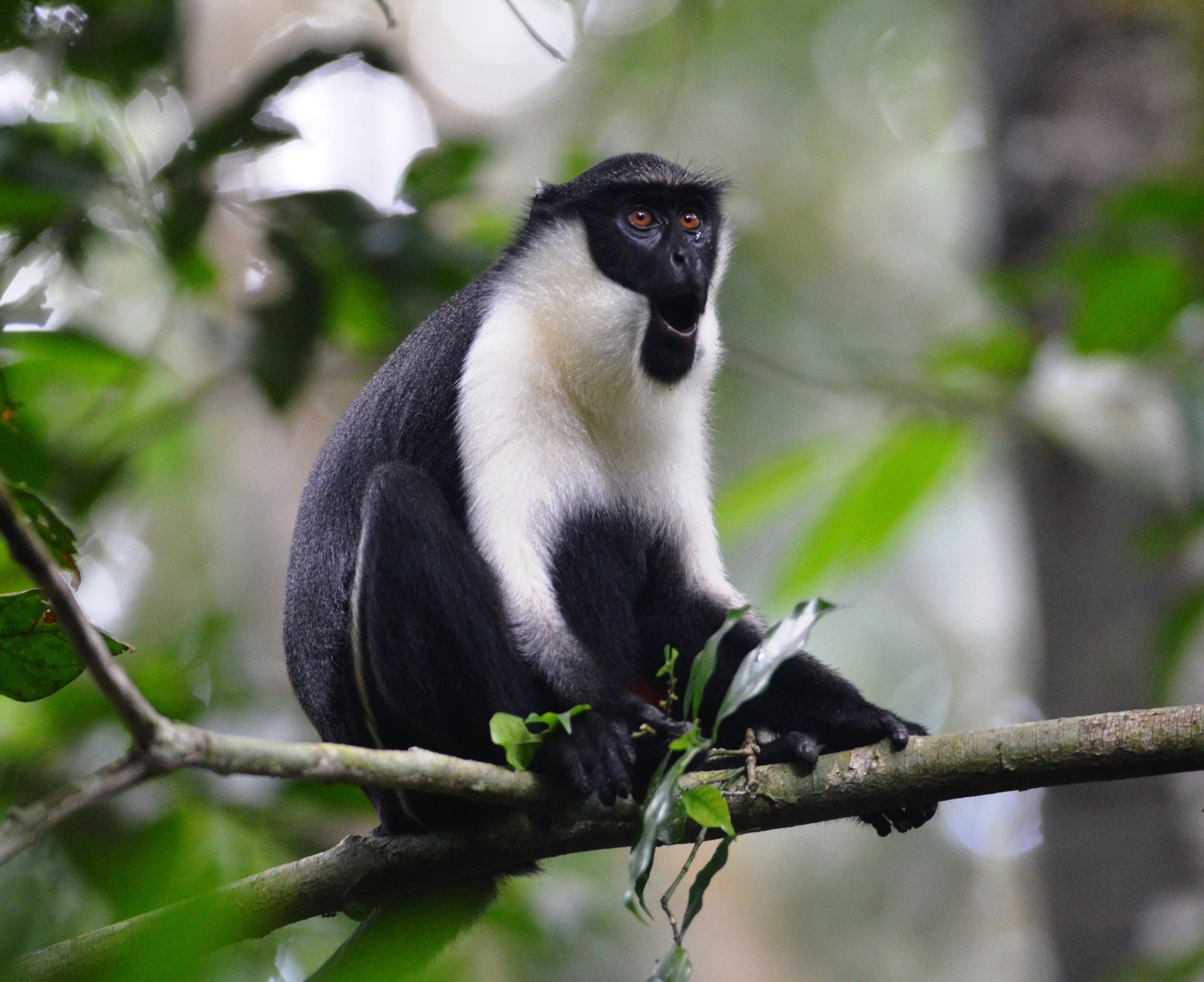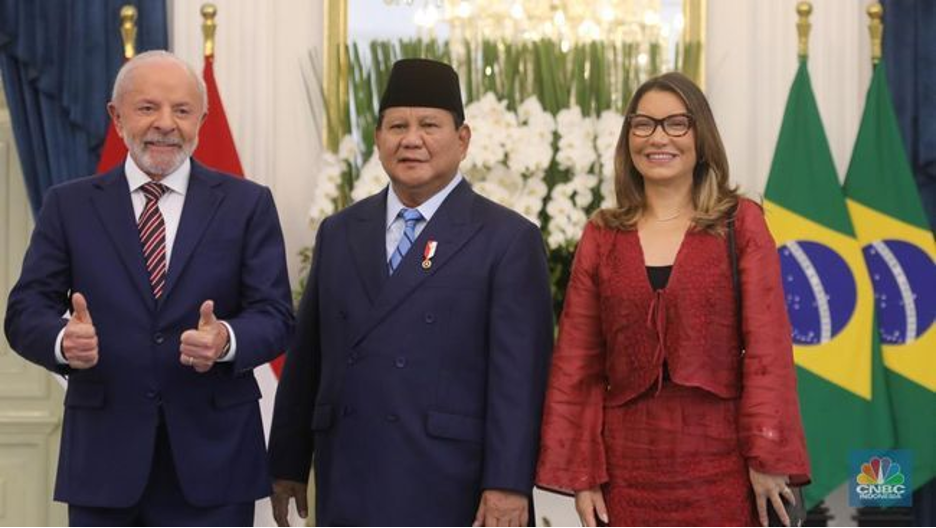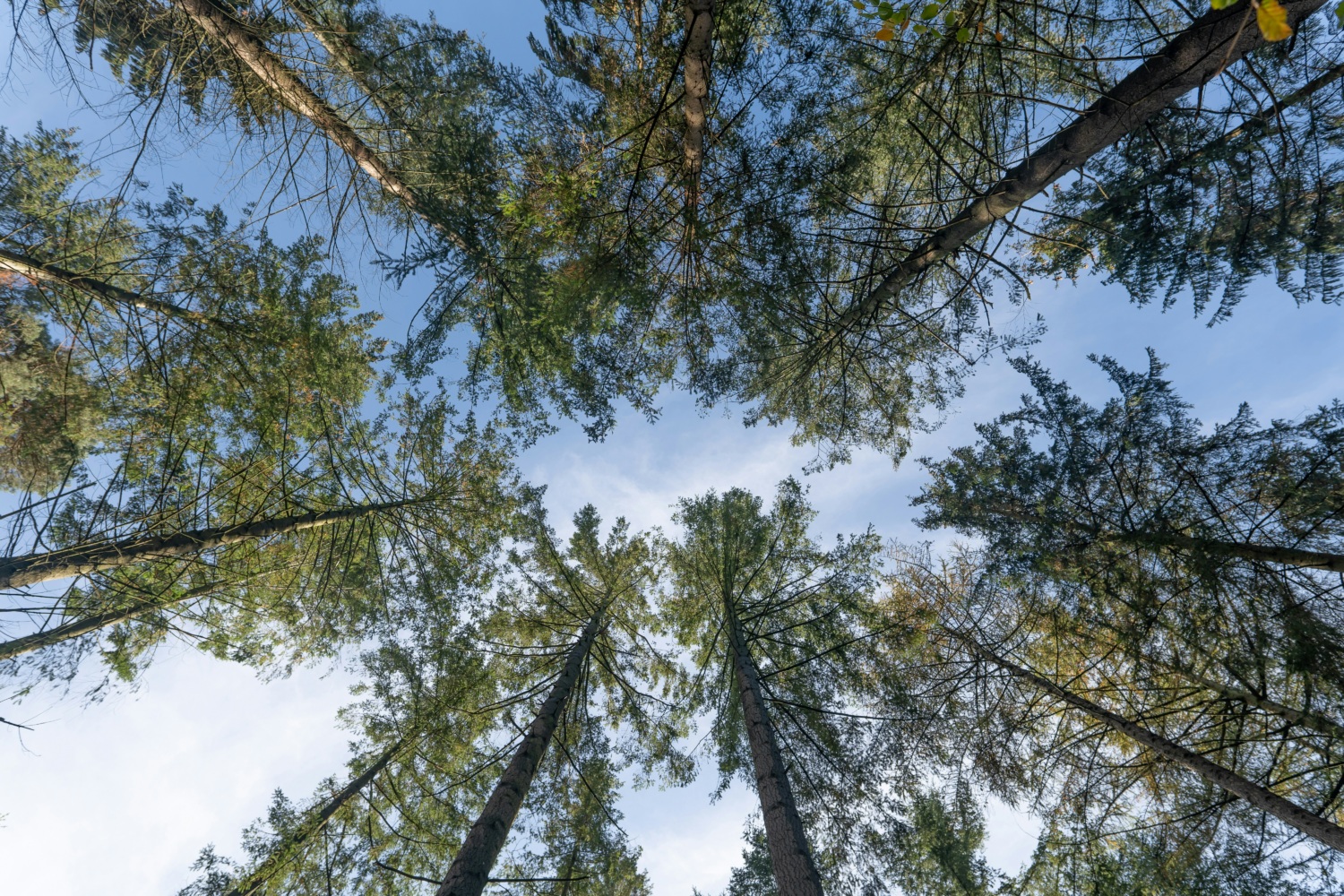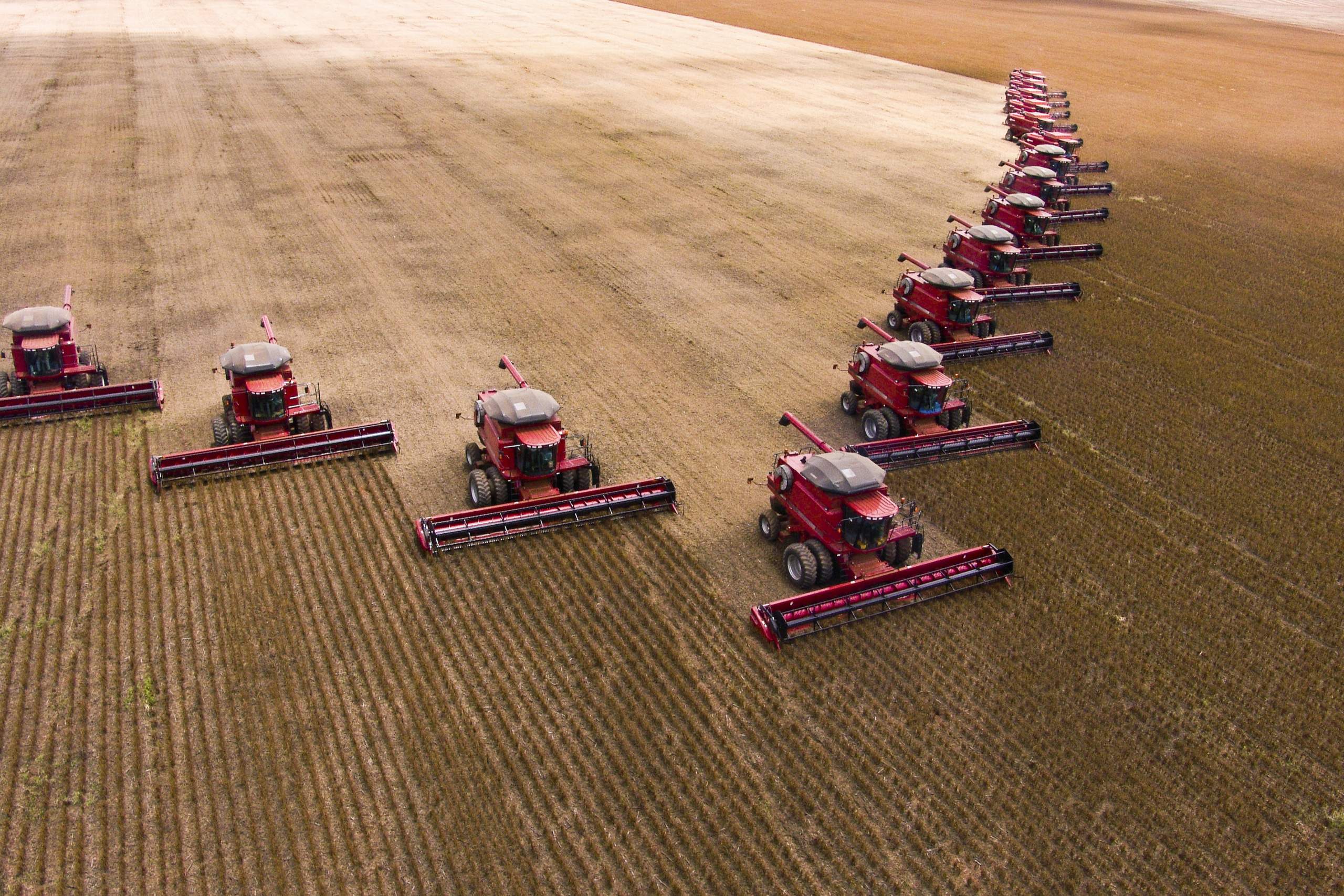Chocolate’s Dark Secret: Behind the Scenes in Côte D’Ivoire
An “Open Secret:” Illegal Ivorian Cocoa
Mighty Earth’s field investigation in Côte d’Ivoire reveals how cocoa is driving illegal deforestation in the nation’s protected areas. Our findings expose how environmental destruction is an “open secret” throughout the Ivorian cocoa supply chain, from growers through traders, chocolate companies and the Ivorian government.
[vc_separator]
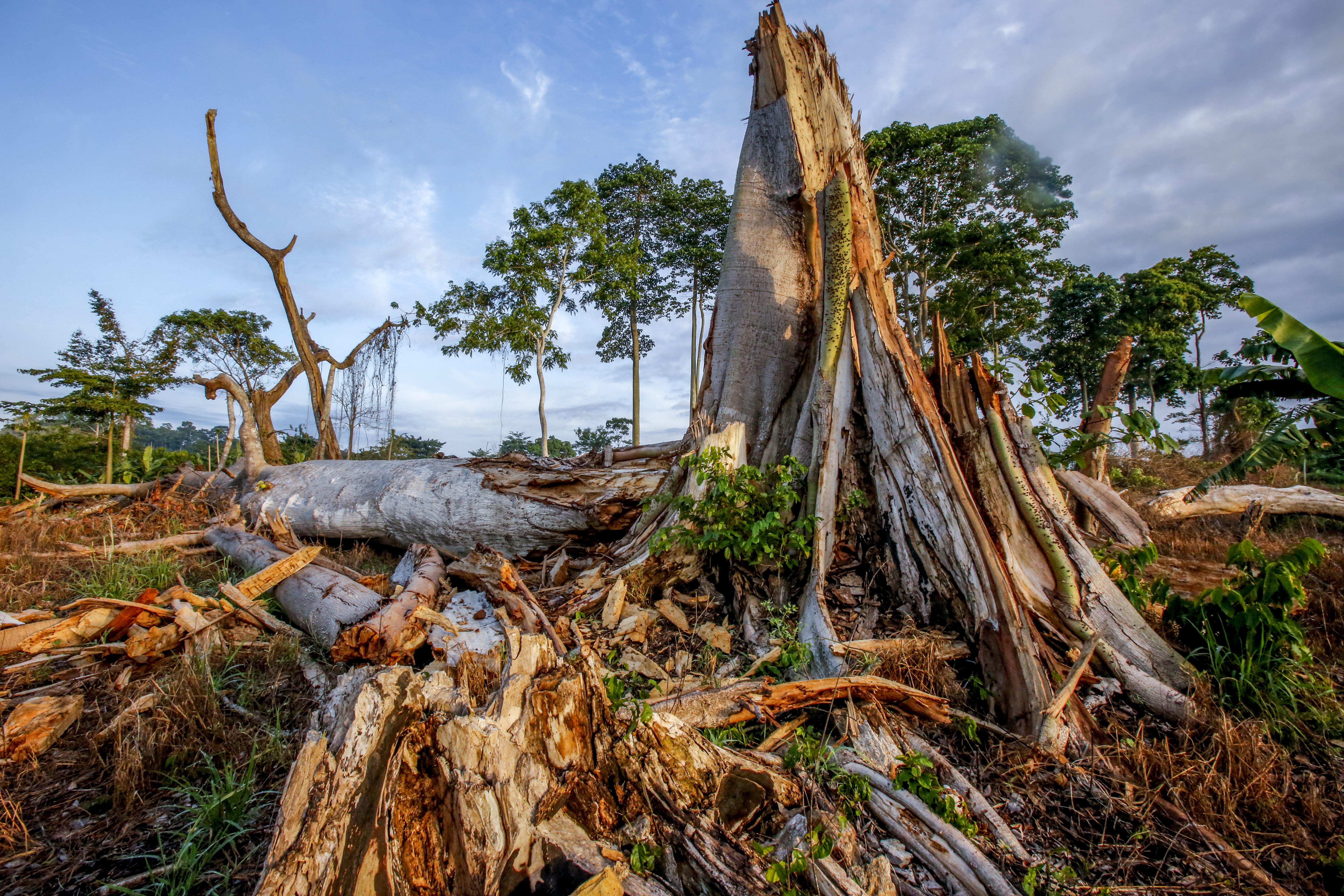
Ivorian protected areas we visited- like this one, Scio – had little original forest left. Cocoa farmers systematically encroach on parks, clear underbrush, plant cocoa, and light fires at the roots of ancient giants to kill them so that the denuded canopy no longer blocks sun for cocoa plantations. What’s left behind are giant skeleton trees in a sea of cocoa.[embedyt] https://www.youtube.com/watch?v=TeFnSIkf24M[/embedyt]
Cocoa production has endangered wildlife by taking over many of the rainforests of Côte d’Ivoire, a country once internationally known as a biodiversity gem in West Africa’s Guinean Forest Region and a nation of great biological richness, species diversity, and endemism. Former poachers that Mighty interviewed in one protected area said that they had virtually stopped poaching, since there were hardly any animals left to kill.
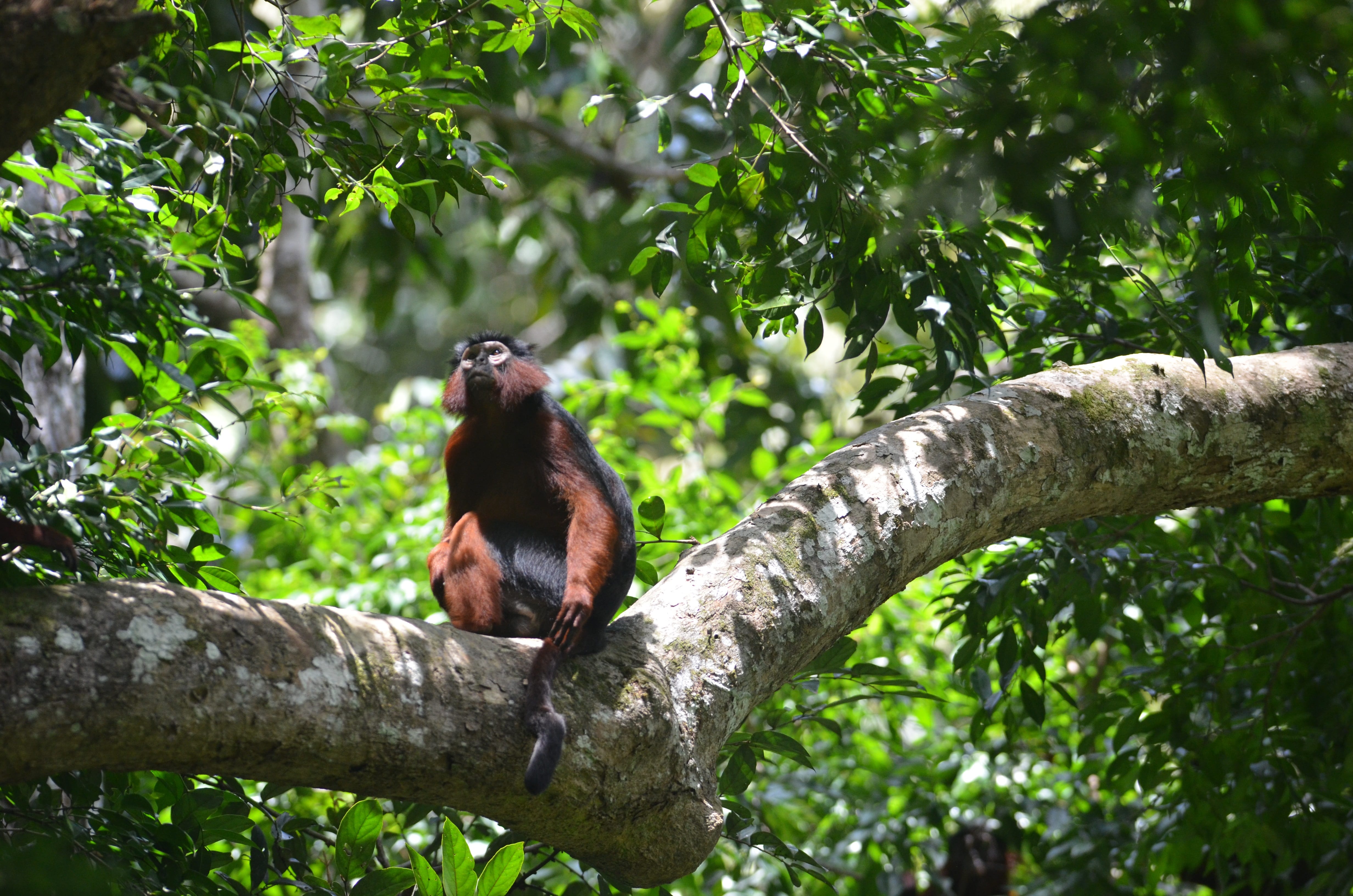
A
A
Deforestation is happening in the largest remaining chimpanzee habitats in Côte d’Ivoire. A recent study on the impact of cocoa production for primate populations in protected areas found that 13 of 23 protected areas surveyed had lost their entire primate populations.[embedyt] https://www.youtube.com/watch?v=D1AvsaoTtvM[/embedyt]
Several interviewees in the protected area of Goin Debe explained that the road in the forest used to be better during the logging boom days, as the loggers kept the road in good condition. Road maintenance declined because nearly all the trees were cleared, so there was hardly any logging left to do and the loggers stopped taking care of the roads.[embedyt] https://www.youtube.com/watch?v=_HK9r_aMHBE[/embedyt]
Farmers burn large trees to make room for cocoa, leaving “skeleton” forests behind of just the trunks. However, when one of the few remaining hardwood trees is deemed large and valuable enough, and is close enough to a road that a truck can come and get it out, farmers will sometimes strike deals with loggers. These massive logs by the side of the road are waiting for a truck to remove them.
[embedyt] https://www.youtube.com/watch?v=7_OvjQlFkyA[/embedyt]
Predatory logging companies go into decimated protected forests and harvest the last few remaining large hardwoods. This truck is driving alongside the edge of Goin Debe forest reserve, which Mighty Earth visited and found to be almost entirely destroyed for cocoa.
[embedyt] https://www.youtube.com/watch?v=mebc9e0iJYQ[/embedyt]
Loggers bring scavenged timber to a facility in the nearby town of Duekoue, where the logs are cut into lumber and stacked alongside the road.
[embedyt] https://www.youtube.com/watch?v=vIM97etwWL0[/embedyt]
The problem of deforestation cocoa is a massive one for Côte d’Ivoire. Cocoa is believed to be the number one driver of deforestation in the country. Much of the cocoa exported out of Côte d’Ivoire comes from inside national parks and forest reserves.[embedyt] https://www.youtube.com/watch?v=u6jTraEU_8s[/embedyt]
We came across this Cargill sign at dawn, showing Rainforest Alliance and Utz Certification, at the edge of the Scio forest reserve in Western Cote d’Ivoire. Ten minutes away, inside Scio, we found complete environmental devastation. Cocoa had replaced what was once a lush tropical rainforest.[vc_separator]
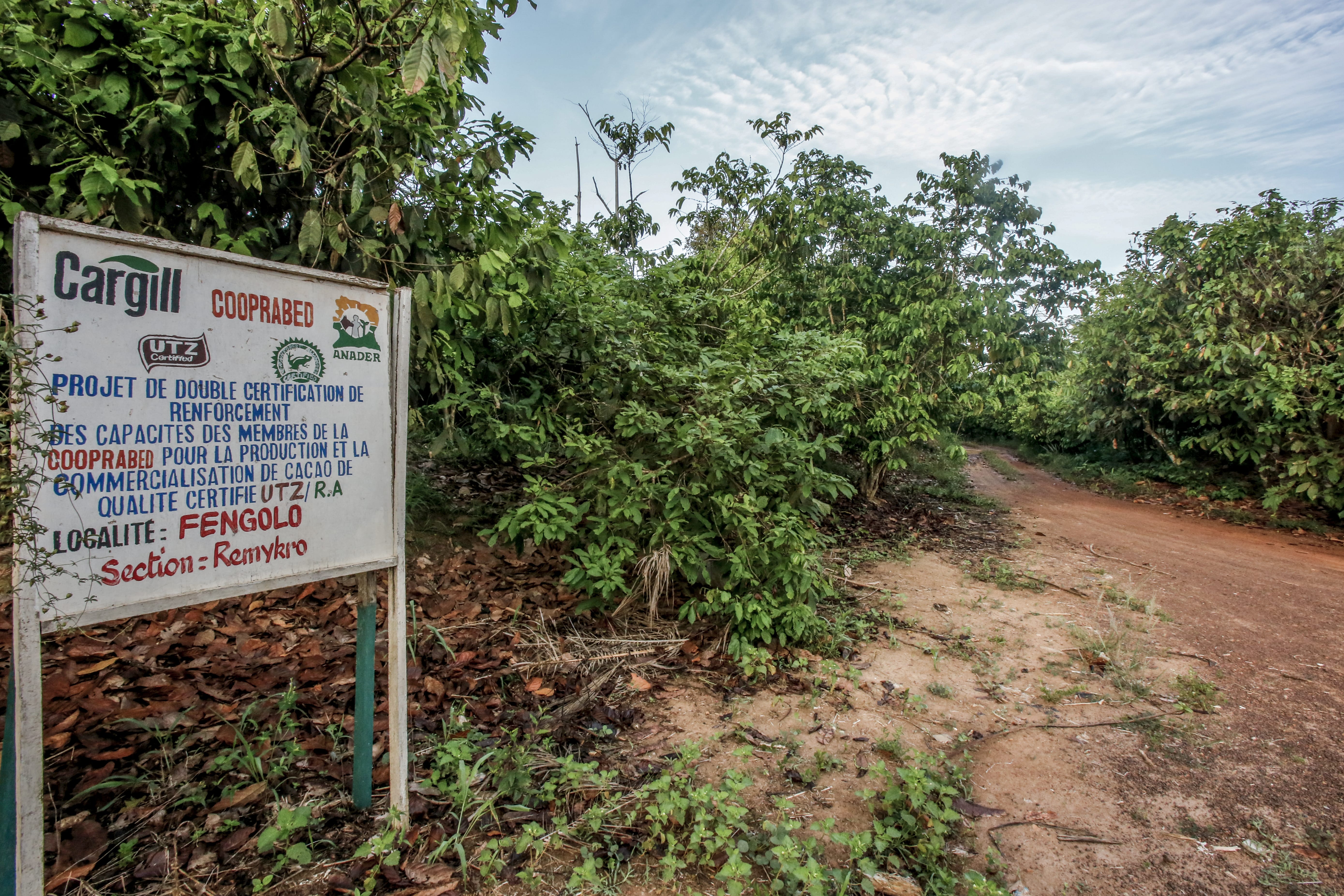
While top chocolate companies and their executives and investors make sizable profits, they pay very low wages and rely on extensive child labor. [vc_separator][embedyt] https://www.youtube.com/watch?v=LbsKgXJNdjQ[/embedyt]
Mighty Earth visited Mount Peko National Park – which means “mountain of hyenas” in the local Gueré language. Forest destruction there was largely driven by cocoa expansion, with 10,000 tonnes worth over $28 million produced annually from the park and an estimated 30,000 illegal inhabitants. The Ivorian government recently cracked down against cocoa-driven deforestation by expelling cocoa farmers, but groups like Human Rights Watch documented extortion and physical abuse by forest conservation authorities in forest evictions. Mighty Earth saw that after the recent crackdown, the park had once again filled back up with cocoa smallholders, like the men in this video.[vc_separator]
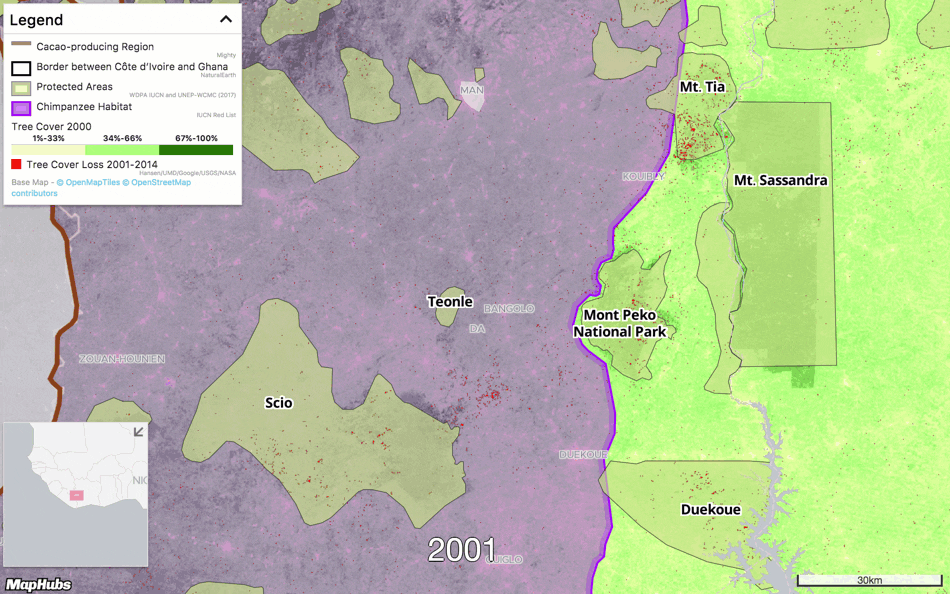
A
Mighty’s satellite mapping shows how deforestation, largely driven by cocoa production, has expanded across Western Cote d’Ivoire. In this map, you can see how cocoa production is expanding into protected areas, as the rest of the nation’s forest has largely been cleared already.[vc_separator]
[embedyt] https://www.youtube.com/watch?v=oahSnNAJSXg[/embedyt]
Agricultural production inside protected areas is illegal. Yet, cocoa cultivation and drying, which you see in this video, was happening in broad daylight, even meters from the main roads through the forests.
[embedyt] https://www.youtube.com/watch?v=1m5ng8xJ3zU[/embedyt]
Cocoa production has grown so out of control that entire towns and villages have sprung up in protected areas. Marahoué Park and Mont Péko Park each contain an illegal population of around 30,000 people. Their presence is an open secret, with homes and even public schools, official health centers, and occasionally cell phone towers, in plain sight of government authorities who have turned a blind eye to or encouraged encroachment into protected areas for decades.
We met cocoa farmers who spoke of their suffering and explained the economic hardships they’ve faced since cocoa prices plummeted by over 30% this past year. Many told us that it has been the worst financial year for them in living memory.
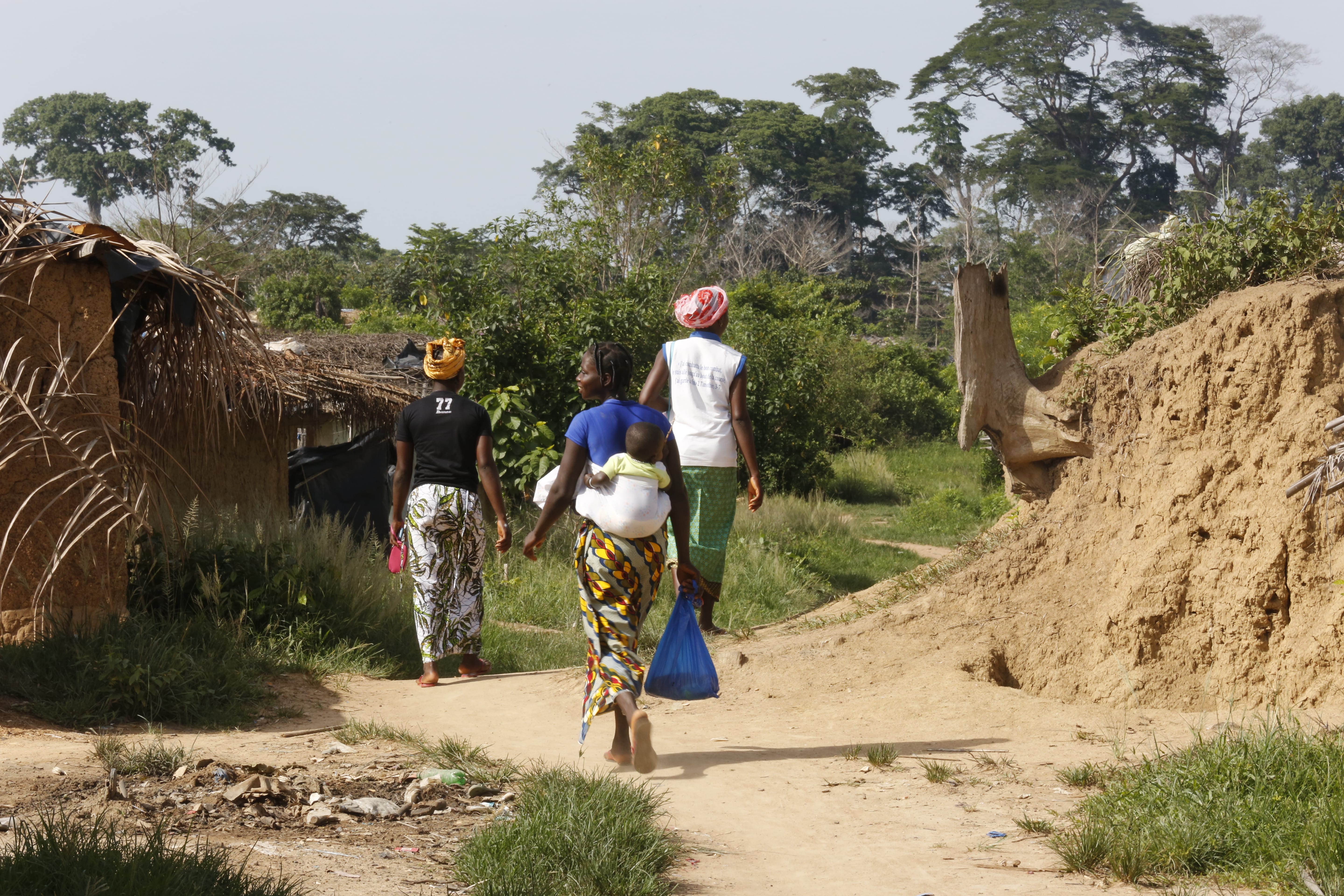
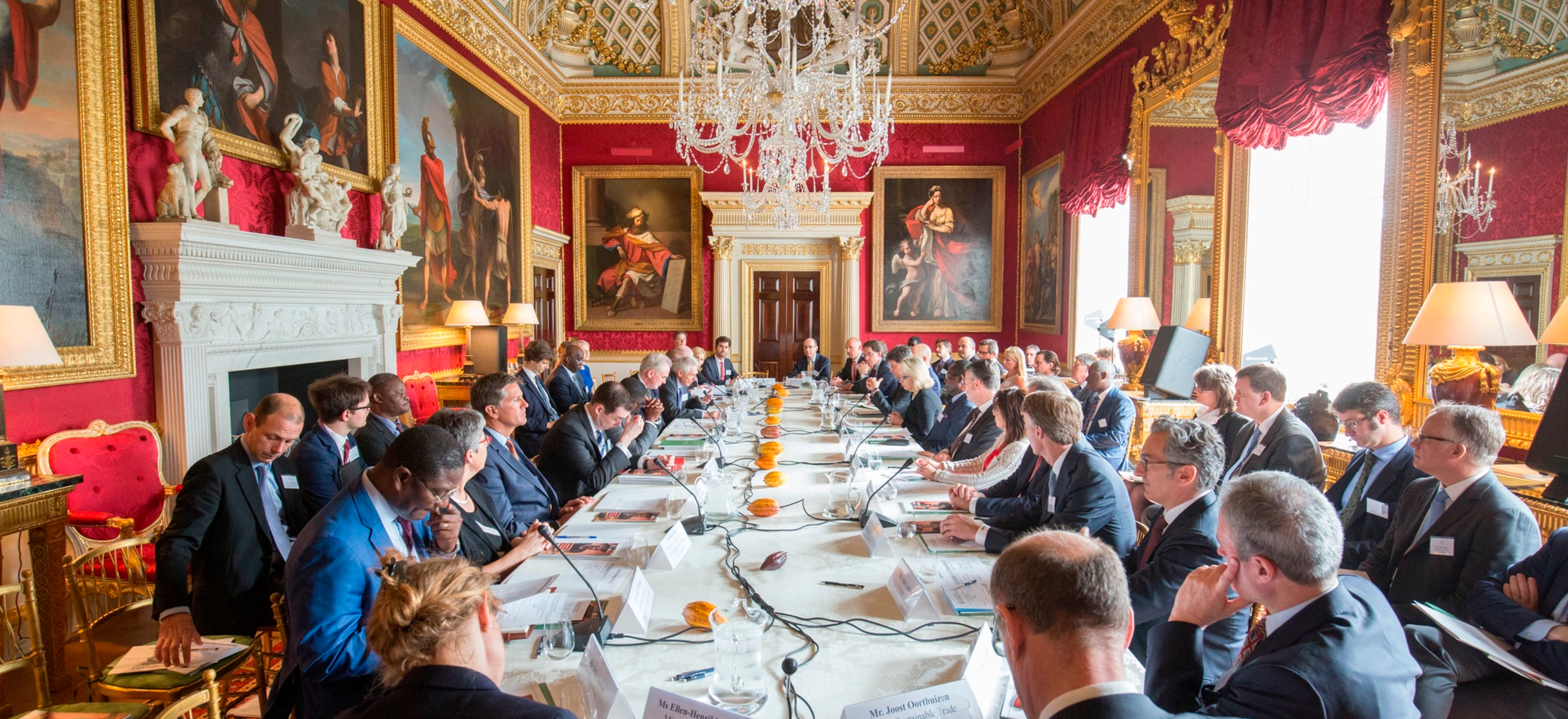
The Ivorian government has made many commitments at the highest level around ending deforestation. Although promises on paper have yet to translate into a reality of forest protection, there is room for optimism that the Ivorian government would support robust industry action this year to save forests. Far beyond Côte d’Ivoire, from the Americas to Asia, there are other forests which can also be saved if the cocoa industry shifts now towards zero deforestation.
